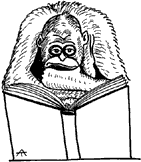Creativity and Common Sense make and Editor
This article is reprinted by kind permission of Writers' Forum, Britain's leading magazine for writers. They can be contacted at Writers International, Suite 28, Wessex House, St. Leonards Road, Bournemouth, BH8 8QS or e-mail [email protected] www.worldwidewriters.com
|

Many writers find it difficult to edit their own copy but by following a few simple rules you can polish your material sufficiently to prove to a commissioning editor that you are a proficient writer and not a chancer who is wasting his time EVERY writer can improve a first draft. Even the simplest article benefits from re-writing. It is fair to say that the best stories are not written but are rewritten and rewritten time and again. Hemingway was once asked why he had rewritten the ending of one of his books fifty-seven times: "To get it right," he replied. You need two elusive qualities to be a great editor: creativity and common sense. You also need to have an inquiring and suspicious mind. Let us take a few simple steps to editing, whether your own material or something written by somebody else.
For fiction ask yourself a few basic questions:-
|
When it comes to improving your manuscript, ask yourself some more simple questions. Have you given answers to the following questions:- Who? What? Where? Why? How? And when? As far as the senses go have you filled in the background on sight, touch, smell, taste, hearing and that author's favourite - the sixth sense? It will probably not be necessary to answer all these points but they are worth considering in your checklist. If the raw material that you are handling seems lacking authority try taking out all adverbs and adjectives and replacing only those that are essential. Check all verbs. Are they strong enough? Verbs are the engines of good writing. Could the story be improved by being written from a different point of view? Try recording a chapter or article and play the tape back to yourself. Trust your ear. Is it easy to read and do the words flow naturally? Finally, get a friend to read your copy - a friend whose judgement you trust and who is not afraid to tell you the truth. Finally, there is a point at which you can overcook good writing, losing freshness and spontaneity. That judgement comes with practice, which is the only way to learn. After the first, second or third drafts, it is worth leaving the manuscript aside for a week or two before coming back to it. You will find it surprising how much more editing can be done at this stage. Remember that lawyers' mistakes go to jail and doctors bury their mistakes, but authors publish theirs. If you have a character travelling by train from Interlaken to Zurich and looks out of the window on the left-hand side to look at the Jungfrau, somebody is bound to realise if you are wrong, knowing that the Jungfrau can only be seen from the right-hand window. If you have an SAS man with a Browning automatic firing 10 millimetre rounds your readers will be aware that you know little about guns. If you talk about lake Windermere, Sahara desert or Mount Kilimanjaro, they will likewise consider you unprofessional. If you cannot check a fact and you are not sure, write around it. |
Â
|
||||
© 2004 WRITERSWORLD Limited
Sites we love
- Casinos Not On Gamstop UK
- UK Casinos Not On Gamstop
- Casino Not On Gamstop
- Casino Not On Gamstop
- Best Non Gamstop Casinos
- Casinos Not On Gamstop
- Casino Not On Gamstop
- UK Online Casinos Not On Gamstop
- Best Non Gamstop Casinos 2025
- Casinos Not On Gamstop
- Casino Sites Not On Gamstop
- Non Gamstop Casino UK
- UK Online Casinos Not On Gamstop
- Non Gamstop Casino Sites UK
- Slots Not On Gamstop
- Non Gamstop Casinos
- UK Casinos Not On Gamstop
- Casinos Not On Gamstop
- Betting Sites UK
- Horse Racing Betting Sites
- Best Online Casinos UK
- Non Gamstop Casino
